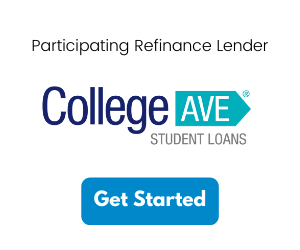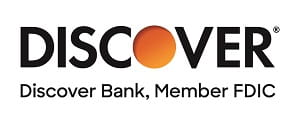Grants can be used to pay for college, and generally grants do not need to be repaid. There are several sources and types of grants to help you pay for college.
What Is a Grant for College?
A grant is a form of gift-aid for college. That means it is money that does not need to be paid back. Grants can come from many sources, including the federal government, your state or even your college.
The Difference Between Grants and Scholarships
Scholarships and grants are two types of gift-aid available for college students. While there is some overlap, scholarships are primarily awarded based on merit, while grants are typically awarded based on financial need. It's worth noting that these terms are sometimes used interchangeably.
Key Takeaways
- Grants are a form of financial aid that does not need to be repaid.
- College grants can come from the federal government, state governments, educational institutions, corporations and private individuals.
- Grants for college students often have specific requirements that must be met in order to qualify for the grant money.
- Eligibility requirements may include specific academic achievements, athletic or artistic talent, volunteer work or special interests such as technology or healthcare.
- Individuals should explore all possibilities when searching for college grants to ensure they receive maximum assistance towards their educational goals.
How to Get Grants for College
Most grants for college, that come from federal, state, or institutional sources will require you to file the FAFSA®. This is because most grants are need-based and your state and college will use the information you provided on the FAFSA to determine your eligibility.
It’s important to note that state and institutional grants may require additional application forms as well. Check with your state’s Department of Education or your school’s financial aid office for more information.
Scholarships From Our Partners
- No essay required
- Four $1,000 winners monthly
- Open to high school students
- Sign up for free on CollegeVine
- No essay. No minimum GPA.
- Scholarship awarded monthly
- Apply to 5 scholarships at sign up
- 100% free for students
More>>>State Scholarship and Grant Programs
Do You Have to Pay Back Grants?
Grants are a type of financial aid that does not need to be repaid and are awarded to eligible students based on specific criteria. However, there are cases where grant funds may need to be returned if eligibility requirements are not met or if the grant was obtained dishonestly, particularly with federal grants.
Federal Pell Grants and Federal Supplemental Educational Opportunity Grants (FSEOG) are part of federal student aid programs. These grants provide financial support to students by disbursing funds in multiple payments to cover college expenses for designated enrollment periods.
More>>>How Financial Aid is Disbursed
If you withdraw from school and didn’t complete 60% of your payment period or period of enrollment for which the grant was intended, your school is required to determine how much of your financial aid you earned. Depending on how long you were in school, the school may be required to return unearned funds to the U.S. Department of Education. Your school will send back federal student loan funds first, then determine if your grant money also needs to be returned—there’s a bit of a grant protection to help limit the need to return grant funds. Any time a return of federal student aid occurs, keep in mind this has nothing to do with the amount of money you owe the school. The return of federal aid funds may create an outstanding balance you will have to pay the school. That’s why if you feel like you should withdraw from school, that you have a conversation with your financial aid office! There could be financial consequences from withdrawing from school during the academic year.
Now for the federal TEACH Grant. The TEACH Grant requires the student to agree to work, teach full-time for a total of at least four years, within eight years after completing or otherwise ceasing to be enrolled for each program a TEACH Grant was received. , as a highly qualified teacher or a special education teacher in a high-need field at an elementary or secondary school (or educational service agency) serving low-income students. If you fail to meet the requirements of a TEACH Grant, your grant will convert to an unsubsidized student loan. More details on that below.
And of course, if you receive any grant fraudulently, it’s not uncommon for the funders of that grant to want their money back, or they may choose to press charges against the person committing fraud. Moral of that story, don’t commit fraud
Federal Grants for College
The federal government offers several grants for college for qualifying students.
What Is a Pell Grant?
The Federal Pell Grant is the largest need-based college grant program, awarding more than $30 billion dollars in grants each year to more than 9 million students. The maximum Federal Pell Grant for the 2023 - 2024 award year is $7,395
Pell Grant Eligibility
To be eligible for a Federal Pell Grant you must:
- Satisfy the other requirements for federal student aid eligibility.
- Demonstrate exceptional financial need, as determined by the Free Application for Federal Student Aid (FAFSA®).
- Be enrolled/accepted for study, in an eligible undergraduate degree or certificate program or in a teacher certification program. Graduate and professional students are not eligible for the Federal Pell Grant program.
- Not have already received a Bachelor’s degree or its equivalent, or first professional degree. Associate degree and certificate recipients remain eligible until they receive a Bachelor’s degree or professional degree. (Students who are double-majoring and will receive two Bachelor’s degrees should be careful to complete the requirements for both degrees at the same time. The student will lose eligibility for the Federal Pell Grant as soon as he or she finishes the requirements for one of the Bachelor’s degrees.)
Exception: If you are enrolled in post-baccalaureate teacher certification or licensing programs, you may be eligible for a Federal Pell Grant. - Not have already received the Pell Grant award for the equivalent of six years (There is a maximum lifetime eligibility for the Pell Grant. Receiving 100% of your determined eligibility for one year is considered one full award, or 100%)
NOTE: There is no minimum enrollment status to receive a Federal Pell Grant for undergraduate studies, however the amount of the grant will be prorated based on your enrollment status (partial, half-time, full-time, etc.).
To be eligible for a Federal Pell Grant for post-baccalaureate teacher certification or licensing, you must be enrolled at least half-time and enrolled in an eligible program at an eligible school.
How to Get a Federal Pell Grant for College
To apply for the Federal Pell Grant, you must file the Free Application for Federal Student Aid (FAFSA) at StudentAid.gov – to continue your eligibility for future years you will need to apply annually. The FAFSA becomes available starting October 1 of each year.
What Is a FSEOG Grant?
The Federal Supplemental Educational Opportunity Grant (FSEOG) is a need-based grant program. Almost $1 billion in FSEOG funding is awarded each year to approximately 1.6 million undergraduate students. The maximum grant is $4,000. Most students receive $100 to $4,000 each year, and the average grant is $599. Colleges may increase the maximum grant by up to $400 for students in study-abroad programs approved by the home-institution for academic credit.
FSEOG Grant Eligibility and Requirements
To be eligible for FSEOG, you must file the Free Application for Federal Student Aid (FAFSA®), be an undergraduate student, not have already earned a bachelor’s degree, demonstrate financial need and satisfy the other general eligibility requirements for federal student aid. Although there is no minimum enrollment requirement, awards may be prorated for less than half-time enrollment. Funding is limited, so it is best to apply early.
The FSEOG is a form of campus-based financial aid, with 75% of the money coming from the U.S. Department of Education and 25% from the college. Not all colleges participate in the FSEOG program. The grants are awarded by the college’s financial aid office, subject to the discretion of the college financial aid administrator. Financial aid administrators are required to give priority to students with exceptional financial need who will receive a Federal Pell Grant during the award year. Students with exceptional financial need are defined as students with the lowest expected family contributions (EFC) at the college.
How to Get a FSEOG
To be eligible for a FSEOG you must first file the FAFSA. The FAFSA becomes available each year on October 1 for the upcoming academic year. We recommend filing the FAFSA as early as possible to maximize your award.
What Is a TEACH Grant?
The Teacher Education Assistance for College and Higher Education Grant (TEACH Grant) provides $4,000 per year to undergraduate and graduate students who agree to teach full-time for four years per program which a TEACH Grant was received, as a highly-qualified teacher or a special education teacher in a high-need field at an elementary or secondary school (or educational service agency) serving low-income students. If you fail to meet the requirements of a TEACH Grant, your grant will convert to an unsubsidized student loan.
TEACH Grant Eligibility
To be eligible for a TEACH Grant, the student must score above the 75th percentile on at least one component of a college admissions test or have at least a 3.25 grade point average (GPA) on a 4.0 scale (or the numeric equivalent). The student must enroll at an eligible school in an eligible program of study that leads to a Bachelor’s or Master’s degree (or a post-baccalaureate certificate if the school does not offer an eligible Bachelor’s degree program) and prepares the student for teaching in a high-need field.
TEACH Grant recipients are required to undergo TEACH Grant Initial and Subsequent Counseling and sign a TEACH Grant Agreement to Serve.
High-need fields include bilingual education, English language acquisition, foreign languages, reading specialist, special education, science and mathematics. High-need fields also include any other field identified as high need by a local education agency or by a federal or state government, if that field is listed in the Teacher Shortage Area Nationwide Listing.
Elementary and secondary schools (and educational service agencies) serving low-income students are listed in the Teacher Cancellation Low-Income Directory. Elementary and secondary schools operated by, funded by or under contract to the Bureau of Indian Education (BIE) also qualify as schools serving low-income students.
How to Get a Teach Grant
To be eligible for a TEACH Grant, you must first file the FAFSA. The FAFSA is becomes available on Oct 1 every year for the upcoming academic school year. You must file the FAFSA for each year you wish to receive aid. We recommend filing as soon as possible to maximize your aid.
What is an Iraq and Afghanistan Service Grant?
The Iraq and Afghanistan Service Grant is reserved for students whose parent or guardian died as a result of military service performed in Iraq or Afghanistan after the events of 9/11. To be considered for this grant you must first file the FAFSA.
Iraq and Afghanistan Service Grant Eligibility
You may be eligible for the Iraq and Afghanistan Service Grant if you are an undergraduate student not eligible for a Pell grant based on your family’s EFC or Expected Family Contribution but you meet the remaining Pell Grant requirements. You must also have a parent or guardian who perished as a result of military service in Iraq or Afghanistan after the results of 9/11 and you were under 24 years old or enrolled in college at least half-time at the time of your parent or guardian’s death.
How to Get an Iraq and Afghanistan Service Grant
To get an Iraq and Afghanistan service grant, you must first file the FAFSA. Your school, in conjunction with the federal government will determine your eligibility for this grant. You will be eligible for the maximum Pell Grant award of $7,395.
*For Iraq and Afghanistan Service Grants first disbursed on or after Oct. 1, 2020 and before Oct. 1, 2021, the award amount is reduced by 5.7% to $5,983.34 due to the Budget Control Act of 2011.
State Grants for College
The federal government isn’t the only source for grants. Many states have programs in place to assist students in need. Grants and eligibility will vary from state to state.
How to Find State Grants
To fine state grants start by visiting your state’s Department of Education website. Here you should find information about potential state-run grant and scholarship programs that you may be eligible for. Many states use the FAFSA to award aid, so be sure to file on or as close to October 1 as possible, as some states award aid on a first-come, first-served basis.
Note: There may be additional application forms for state-based grants, so be sure to read through the requirements thoroughly.
More>>>State Scholarship and Grant Programs
Institutional Grants
Institutional grants are grants provided by your school. Many schools will look at your FAFSA information when determining eligibility for institutional grants.
How to Find Institutional Grants
The best resource for institutional grants is your college’s financial aid office. They will have a list of grants awarded by your school and can discuss your eligibility with you.
Free Money for College
In addition to grants, scholarships are another form of gift-aid for college that does not need to be repaid. There are tens of thousands of scholarship opportunities available to students each year. Use a scholarship search site to locate scholarships you qualify for.
We also recommend applying for easy, no essay scholarships such as the scholarships we award on ScholarshipPoints.com. We give away one $2,500 and three $1,000 scholarships each month. Hear from past winners or sign up today.
Scholarships From Our Partners


















